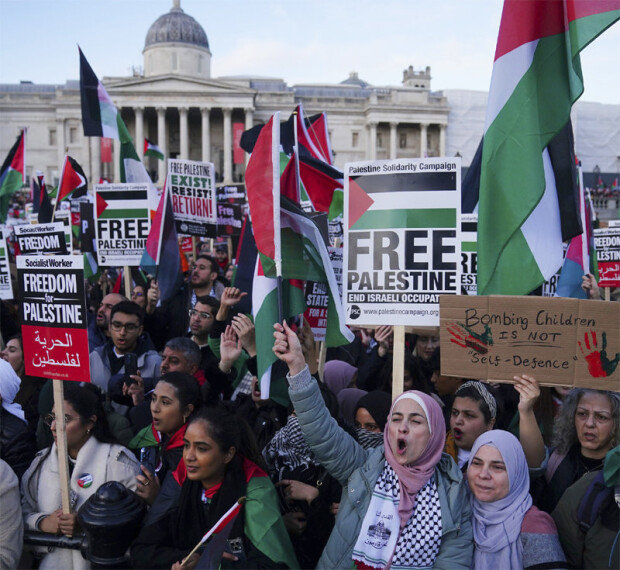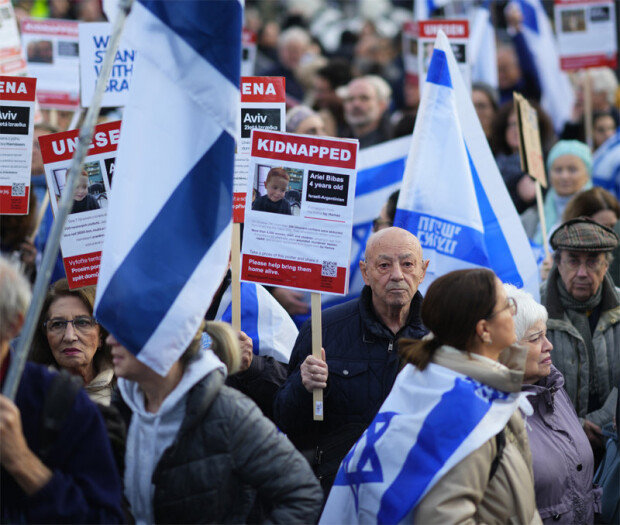World increasingly divided after one month of war in Middle East
World increasingly divided after one month of war in Middle East
Posted November. 06, 2023 08:04,
Updated November. 06, 2023 08:04


“Israel claims that its attacks on the Gaza Strip are all about removing Hamas militants. Then, how are all the dead children related to them?” In a restaurant in Cairo with the Palestinian and Egyptian flags flapping at the entrance, one of the guests named Noha, an Egyptian citizen, said, “Israel has every reason to target Hamas troops. However, what is happening is no different than racial cleansing.” “We also bear feelings of resentment toward Israeli attacks. Likewise, we hope our guests will feel the same way and stand together.’ a restaurant employee explained the restaurant’s decision to raise the Palestinian flag.
By contrast, people against antisemitism took to the streets in Europe and the United States over the weekend, calling on Hamas to set civilian hostages free. In favor of the Israeli government, they argued that the first step to a ceasefire is for Hamas to liberate the people held hostage.
It has been a month since the war situation in the Middle East began following the sudden attacks led by Hamas on Israel on Oct. 7. With mass killings cruelly executed by Hamas, many parts of the world have taken the side of Israel preparing for retaliation. However, its large-scale attacks have only intensified the situation, leaving the rest of the world concerned about the expansion of the war and driving civilians into a state of devastation. The result is a divided world with supporters of Israel and anti-Israel groups split on both sides. At the same time, a growing number of people call for a humanitarian pause or a ceasefire.
Making the third visit since the breakout of the war, U.S. State Secretary Antony Blinken discussed with Israeli Prime Minister Benjamin Netanyahu on Friday how to minimize the damage to civilians and put an end to Hamas-led terrorist acts. Even with Secretary Blinken’s attempts to persuade him to execute a temporary pause to allow civilians to evacuate, Prime Minister Netanyahu firmly said that Israel refuses a pause without hostages to be set free. On that same day, Syed Hassan Nasrallah, the leader of the Iran-supported Lebanese militant group Hezbollah, said in a speech that an all-out confrontation could become a reality. However, it is likely that the group may join the war to a limited extent for some time. With Israel taking a hardline stand, uncertainties over the Middle East are only growing.
pep@donga.com



![아침 공복 따뜻한 물 한 잔, 정말 살 빠지고 해독될까?[건강팩트체크]](https://dimg.donga.com/c/138/175/90/1/wps/NEWS/IMAGE/2026/03/05/133467930.3.jpg)



